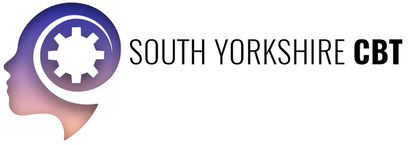WHAT IS CBT (COGNITIVE BEHAVIOURAL THERAPY)?
Cognitive Behavioural Therapy or CBT as it is more commonly known is a structured, present orientated psychotherapy that focuses on solving current problems that are maintained by dysfunctional thinking patterns and unhelpful or problematic behaviours.
CBT helps the individual become more aware of inaccurate or negative thinking in order that they are able to perceive and understand situations differently and respond in a more helpful way.
Cognitive Behavioural Therapy looks at the relationship between thoughts, feelings/emotions, physical symptoms and behaviours. CBT understands that these elements are linked and have a direct effect on each other. CBT is based on the concept that negative thoughts can make us experience emotions such as depression, anxiety, low self esteem and anger. These negative thoughts and emotions can result in the individual being caught in vicious circles or unhelpful patterns of behaviour.
Cognitive Behavioural Therapy or CBT as it is more commonly known is a structured, present orientated psychotherapy that focuses on solving current problems that are maintained by dysfunctional thinking patterns and unhelpful or problematic behaviours. CBT helps the individual become more aware of inaccurate or negative thinking in order that they are able to perceive and understand situations differently and respond in a more helpful way.

WHERE HAS CBT COME FROM?
CBT was introduced by the esteemed Psychiatrist Aaron T Beck in the 1960’s. He wanted to find an empirical basis for psychoanalysis treatments for depression (Beck 2011). Whilst undertaking this work he found that cognition, specifically negative thoughts played a major role in depression.
The original idea of Cognitive Behavioural Therapy is that people with depression hold a set of beliefs about themselves, others and the world. These beliefs result in negative thoughts triggered by distress or difficulty. The negative thoughts result in the maintenance of depression.
Eventually, it became apparent that this concept could be used to understand a variety of different problems and it began to be applied to anxiety and other disorders. Since then CBT has developed a robust evidence base. It can be applied to a variety of issues and be delivered in a variety of different ways and settings.
CAN CBT HELP ME?
If you are suffering with any of the following issues then southyorkshirecbt can help, we recommend cognitive behavioural therapy as a treatment for the following issues:
- Depression
- O.C.D.
- Anxiety
- Anger Management
- Social Anxiety/Phobia
- Chronic Pain
- Low Self Esteem
- Panic disorder
- Agoraphobia
- Health anxiety
- Body image
- Post- Traumatic Stress Disorder (PTSD)
- Personality Disorders
- Sexual issues
Recommended by the National Institute for Health and Social Care
Whilst CBT can help you overcome your depression or anxiety disorder, it is important to understand that it is not a magic cure. Evidence indicates that for a successful outcome in CBT the individual must be motivated and open to learning new ways of understanding themselves. A full commitment to therapy and to using and developing skills between sessions is one of the strongest predictors of positive outcome. Successful CBT is akin to developing any new skill. Consider learning to drive a car or playing an instrument. These skills take time and can’t be mastered without practice and dedication from the learner. The same is true of Cognitive Behavioural Therapy.

